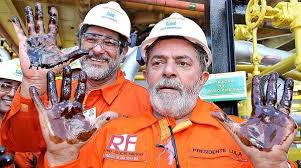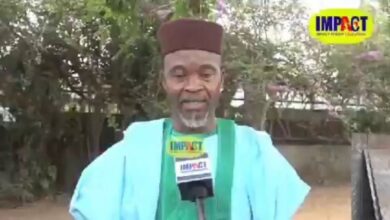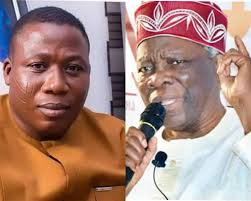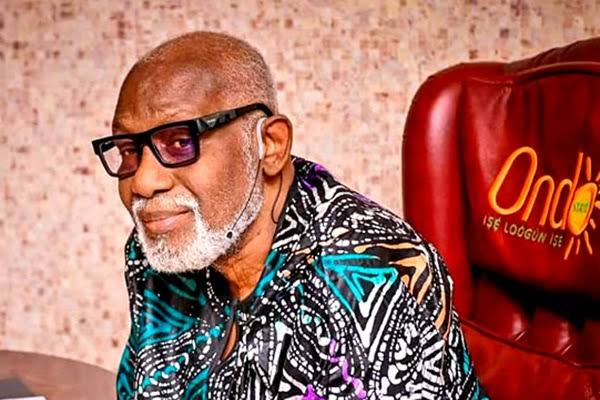Lula’s Amazon oil drilling cast doubt on Brazil’s climate deal–African activists

By Samuel Ogunsona
As Brazil prepares to host COP30 later this year, the world’s eyes are on President Luiz Inácio Lula da Silva Government, which is facing intense criticism for pushing forward with new oil drilling projects in the Amazon rainforest.
The move has raised eyebrows, especially given the country’s recent struggles with extreme heat and flooding.
“As far as I am concerned, this is a misplaced priority,” said Ogunlade Olamide, Senior Program Manager,
Corporate Accountability and Public Participation Africa (CAPPA).
The Brazilian Government’s decision to pursue oil extraction in the Amazon has put pressure on the country’s environmental agency, which is now under scrutiny for potentially expediting the approval process for the contentious project.
Brazil, OPEC+ Background Story
Brazil’s journey to joining OPEC+ began in October 2023 when HE Haitham Al Ghais, OPEC Secretary General, made a historic visit to Brazil, marking the first-ever visit by an OPEC Secretary General to the South American nation.
This visit paved the way for Brazil’s potential membership in the Charter of Cooperation (CoC) between oil-producing countries.
In November 2023, HE Hon. Alexandre Silveira, Minister of Mines and Energy of Brazil, announced at the 36th OPEC and non-OPEC Ministerial Meeting that Brazil would be joining OPEC.
This announcement was followed by several high-level bilateral meetings and visits throughout 2024, facilitated by HRH Prince Abdul Aziz bin Salman Al Saud, Saudi Arabia’s Minister of Energy and Chairman of the OPEC and non-OPEC Ministerial Conference.
On February 22, 2025, the National Energy Council of Brazil formally approved the country’s participation in the Charter of Cooperation, making Brazil the seventh-largest oil producer in the world and the first South American nation to join OPEC+
Brazil’s membership in OPEC+ is expected to contribute to a secure energy supply and lasting stability in the global oil and energy markets.
Backlash and Concerns: Responses from Environmental Groups and Advocates
However, some critics argue that this move contradicts Brazil’s commitment to hosting the UN Climate Summit (COP30) later this year
“How easily should a country like Brazil with increasing social inequality and documented impacts of oil exploration be considering further investments in the sector?,” Ogunlade Olamide shared his insights in an exclusive interview.
He said, “Lula and his team should have devoted their energies to curtailing the dangerous emission from existing oil fields and rescue without any delay Brazil’s tensed public health sector to accommodate the victims of their capitalist agenda.
“Only investments in renewable energy will be applauded in the spirit of climate justice and global solidarity.” He said.
Olamide emphasized that Lula’s comments and reasoning were not only offensive but also had the potential to be deeply hurtful to his community, implying that they were insulting and demeaning.
“President Lula’s decision to have Brazil join the Charter of Cooperation (CoC) and leverage the gains from fossil fuel investments to finance just transition is an assault on his people and the Global South as a whole.
“His decision not only affirmed the porosity of his Government policies to foreign propositions, it also established the superiority of corporate interests over public goods. With this decision we can confirm the prevailing might of global politics to shaping countries energy and climate change priorities.” He mentioned.
Africa environmental activist, Joseph Chibu, Assistant Programme Manager at Green Environmental People’s Network (Grepnet), expressed his dismay, stating: “This decision is a disheartening blow to those counting on the Brazilian government to spearhead a fair transition away from fossil fuel exploration – a crucial step for the planet’s survival.
“It’s a reckless gamble with the future of our planet, prioritizing short-term gains over long-term sustainability and the well-being of generations to come.” Chibu emphasized.
However, Lula’s decision has raised concerns that Brazil’s commitment to reducing its carbon footprint may be wavering, despite its role as host of the upcoming UN climate summit.
The juxtaposition of Brazil’s environmental aspirations and its pursuit of fossil fuels has left many wondering whether the country can truly lead the charge against climate change while expanding its oil operations.
As the world gathers for COP30, all eyes will be on Brazil to see how it navigates this delicate balancing act.





